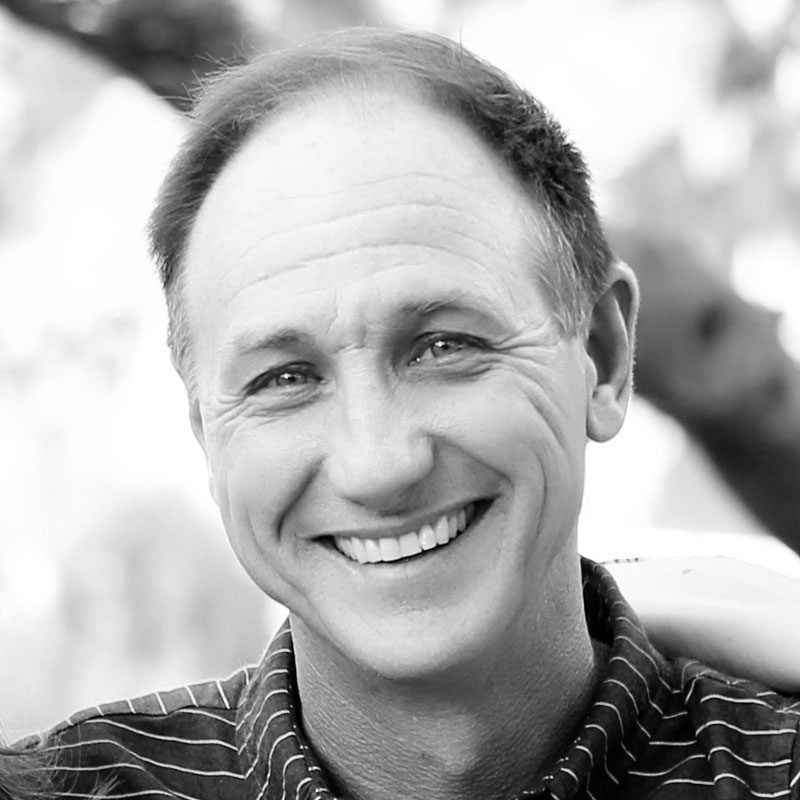
Steve Price '86
Co-Pastor
How did you find your way to where you are today? Share a little about your professional journey.
Who would have guessed an accounting major bent on pursuing a career that would lead to a partnership with a Big Eight accounting firm would end up as a pastor? My journey included some interesting twists and turns in the first decade after graduating from Furman, including roles as a tennis pro and youth director, a master's degree in English education from FSU, and even a short stint as a copier salesman. It all ultimately led me to Duke University, where I completed my master's of divinity.
From there, I returned to Florida to accept an appointment in the United Methodist Church as co-pastor alongside my wife, Catherine '86, who was already an ordained clergywoman. We became the first clergy couple sent to start a new church in the Florida Conference, serving Harvest UMC in the Sarasota/Bradenton area for nearly 20 years. This past summer we received a new appointment, again as co-pastors, to Trinity UMC in Gainesville, Florida.
What inspires you?
I am inspired by people who are passionately committed to living out their faith in ways that make a tangible difference in their homes, workplaces, communities, and the world. One of the greatest privileges as a pastor has been the opportunity to invite, encourage, and mobilize people for generosity and service. The question that challenged me a number of years ago and has continued to inform my leadership is this, "If your church disappeared tomorrow, would the surrounding community miss it?" It inspires me to witness the church carry out its ministry in such a way it impacts neighbors in meaningful and recognizable ways.
When providing advice for professional development, what are some tools or resources one should consider?
The most valuable, sustainable resource for personal and professional development over the past 15 years has been my covenant group, a menagerie of eight pastors who all serve in the Florida Conference of the UMC. We retreat together twice annually and are in contact with each other weekly. Whenever any of us has a challenge, a question, a staff dilemma, or even simply a great idea, we go to the group for input. Every pastor should have a close group of colleagues also in ministry to draw support, encouragement, wisdom, and accountability.
Books? Read anything by N.T. Wright, Rowan Williams, or Wendell Berry. Personality Assessments? Everyone should take the Myers Briggs Step II. The Step II provides far greater detail and more insights than the Step I. I also find the FIRO-B assessment enlightening.
How would you recommend someone interested in the same career/vocation pursue a similar path?
It is important to start with a time of discernment. For someone considering ministry as a vocation, the decision must grow out of a clear sense of calling. Spend time talking with others who are already in ministry to learn more about what the life of a pastor really entails. Ask family members, friends, and colleagues what gifts and traits they see in you that would be well suited (or poorly-suited) for ministry. Seek an internship opportunity that can provide a valuable learning experience before committing to the time and expense of graduate school.
What are some challenges you face in your industry?
Being a pastor in the early 21st century is far different from previous generations. The numerous alternatives competing for the time and attention of the individual and family on Sundays, the impact of technology on communication, dwindling attention spans, the lack of shared Biblical literacy, and the ever-increasing nonprofits seeking to attract dollars from potential donors (to name a few) create a new and challenging environment for ministry. At the same time, our present situation encourages greater creativity, deeper listening, a keener awareness of the surrounding culture, and a heightened commitment to excellence.
What do you wish you would have known getting started in your field?
I wish someone had told me, "This is a marathon, not a sprint." I started at a pace that was unsustainable for the long haul. Fortunately, I learned to self-correct early on and establish a rhythm for life and ministry that created time and space for taking care of self and honoring family. Sadly, I know colleagues who burned out because they failed to establish a sustainable pace.How could Furman help with getting someone started?
Furman has a robust program for Exploring Vocations in Ministry (EVM), opportunities afforded through the Mere Christianity Forum and Servant Scholars program out of the Vista House, and caring faculty willing to spend time with students in helping them discern a sense of calling. These programs foster an environment where students can gain clarity about a vocation in ministry. I would also love to see opportunities made available to connect current students exploring ministry with Furman graduates in the field.
How has your liberal arts background shaped your career path or supported your success?
My liberal arts experience encouraged me to explore a broad array of subjects, which opened my mind to consider a variety of possibilities for a vocation. My education at Furman also taught me to think both critically and creatively, practices I use daily in the work of ministry, especially in the design of sermons and worship experiences that connect with both the heart and the mind.
What was your major(s)? And how have you applied it in your career field?
I was an accounting major, which became particularly helpful when assigned to a new church start. With no systems in place and no staff at the beginning to help implement them, the benefit of being able to rely on my knowledge in this field was immeasurable. It has also been useful in preparing tax returns, which can be quite complicated due to some unique treatments that apply to clergy under the IRS tax code.
0